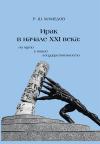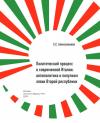Report Starting the process of Trust – Building in NATO – Russia Relations: the arms control dimension
| Тема: | Безопасность |
| Год издания: | 2013 |
| Авторы / под ред. : | Лукаш Кулеса |
Описание
Издательство: Polski Instytut Spraw Miêdzynarodowych
Организация: The polish institute of international affairs, The European Leadership Network
Отв. ред. : Anthony Casey
ISBN: 978-83-62453-71-9
The spectre of Cold War seems to be coming back to Europe. Russia and Belarus have recently conducted West 2013 exercises, sparking anxieties of its NATO neighbours. NATO itself is in the middle of Steadfast Jazz 2013 exercises testing territorial defence scenarios, which in turn is criticized in Russia. Lack of trust in the NATO-Russia relationship is one of the reasons preventing the two sides from reaching progress on the issues of missile defence in Europe, tactical nuclear weapons or conventional arms control.
How to decrease a risk that those differences would lead the two sides to the brink of a new Cold War? A new Report Starting the Process of Trust-Building in NATO–Russia Relations: The Arms Control Dimension by PISM and European Leadership Network argues that a way out of the mutual distrust spiral could be found through a new approach to arms control. Basing on models of trust-building and historical experiences, the report recommends practical measures introducing mutual restraint and increased transparency to conventional and nuclear force postures, as well as missile defense build-up, of NATO and Russia.
Прошедший опрос
-
Какие угрозы для окружающей среды, на ваш взгляд, являются наиболее важными для России сегодня? Отметьте не более трех пунктов
Увеличение количества мусора 228 (66.67%) Вырубка лесов 214 (62.57%) Загрязнение воды 186 (54.39%) Загрязнение воздуха 153 (44.74%) Проблема захоронения ядерных отходов 106 (30.99%) Истощение полезных ископаемых 90 (26.32%) Глобальное потепление 83 (24.27%) Сокращение биоразнообразия 77 (22.51%) Звуковое загрязнение 25 (7.31%)

«Международные исследования в России»

Статистические данные по международной проблематике

Электронные журналы и библиотеки



